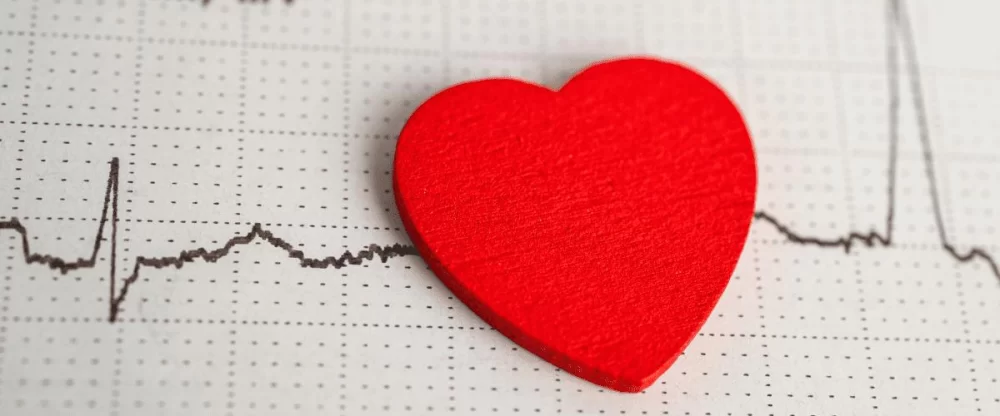Understanding and Effectively Dealing with Heart Palpitations
Have you ever suddenly felt your heart racing, pounding, or fluttering? This is what is commonly referred to as heart palpitations. For many, this feeling can be quite alarming, especially when it happens unexpectedly. But don’t worry – heart palpitations are often harmless and can be managed with a few simple steps. In this article, I’ll share what heart palpitations are, why they occur, and most importantly, how to effectively deal with them.

What Are Heart Palpitations?
Heart palpitations are the sensation of an irregular heartbeat, fluttering, or pounding in your chest. This can happen when the heart beats too fast, too slow, or in an irregular pattern. While it may feel unsettling, it’s usually not a sign of a serious medical problem. However, frequent or severe palpitations might indicate an underlying condition that needs attention.
These episodes can occur due to a variety of factors, such as stress, anxiety, or even certain medications. In some cases, lifestyle factors like excessive caffeine intake or dehydration might be the culprit. But palpitations can also occur because of more serious conditions like arrhythmias or heart disease. That's why it’s important to understand the underlying cause and take appropriate action.
Cardiac Solutions
cardiac solutions
5651 W Talavi Blvd, Glendale, AZ 85306, USA

Common Causes of Heart Palpitations
There are many different triggers that can cause heart palpitations. Here are some of the most common ones I’ve experienced and learned about:
- Stress and Anxiety: Emotional stress or anxiety is one of the most common reasons people experience palpitations. When we’re stressed, our bodies release adrenaline, which can make our hearts beat faster.
- Exercise: After intense physical activity, your heart rate can increase, which sometimes leads to palpitations. While this is generally harmless, it’s important to cool down gradually.
- Caffeine and Stimulants: Too much caffeine, nicotine, or other stimulants can trigger palpitations. This includes energy drinks, coffee, and even some medications.
- Hormonal Changes: Hormonal fluctuations, particularly during pregnancy, menstruation, or menopause, can cause palpitations.
- Medical Conditions: Conditions like hyperthyroidism, anemia, or heart-related issues such as arrhythmias can cause heart palpitations. It's crucial to consult a doctor if you suspect a medical condition.
- Dehydration: When your body lacks adequate fluids, the blood becomes thicker, and the heart works harder to pump blood, leading to palpitations.
How to Effectively Deal with Heart Palpitations
Now that we understand the causes of palpitations, let’s dive into how we can manage them. From lifestyle changes to natural remedies and medical treatments, here are the most effective strategies I’ve found:
1. Practice Deep Breathing and Relaxation
When you experience palpitations, one of the first things you can do is calm your nervous system. I’ve found deep breathing exercises to be incredibly helpful. Take a deep breath in through your nose for four seconds, hold for seven seconds, and exhale slowly through your mouth for eight seconds. This technique helps trigger the body’s relaxation response, which can regulate your heart rate and calm your nerves.
2. Stay Hydrated
One of the simplest ways to prevent palpitations is by staying hydrated. Drinking plenty of water throughout the day ensures that your blood remains thin, and your heart doesn’t have to work overtime. I’ve noticed a big difference in how I feel when I keep my water intake up, especially during hot weather or after exercise.
3. Limit Stimulants
If you’re prone to palpitations, it’s a good idea to cut back on caffeine, nicotine, and other stimulants. I used to have several cups of coffee a day, and it wasn’t until I cut back that I noticed a reduction in palpitations. Reducing these substances allows your heart to maintain a more regular rhythm.
4. Get Enough Sleep
Lack of sleep is another factor that can contribute to heart palpitations. When you’re sleep-deprived, your body can become more sensitive to stress, which might lead to palpitations. I’ve found that ensuring a consistent sleep routine greatly reduces my chances of experiencing them.
5. Manage Stress Through Exercise
Exercise is a great way to manage stress, which, as we’ve seen, is a major trigger for palpitations. Regular physical activity helps keep your heart healthy and can help lower your resting heart rate, which reduces the occurrence of palpitations. I personally enjoy yoga and walking, as these activities help me relieve stress and improve my overall cardiovascular health.
6. Consider Dietary Changes
Maintaining a heart-healthy diet is crucial for preventing palpitations. Foods rich in potassium and magnesium, such as bananas, spinach, and avocados, help regulate your heart's electrical signals. I’ve also found that reducing processed foods and focusing on whole, nutrient-dense meals supports my heart’s health and helps avoid palpitations.
7. Seek Medical Advice
If your palpitations are frequent, prolonged, or accompanied by chest pain, dizziness, or shortness of breath, it’s important to consult a healthcare professional. A doctor can help diagnose any underlying conditions that might be causing the palpitations and provide you with a tailored treatment plan. In some cases, medication or procedures might be necessary to regulate your heart rhythm.
Real-Life Experience: Dealing with Heart Palpitations
Let me share a personal story. A few years ago, I started experiencing palpitations after stressful work days and long hours of sitting in front of the computer. Initially, I thought it was just anxiety, but when the palpitations didn’t go away, I decided to see my doctor. After some tests, it turned out that my thyroid was overactive, which was contributing to the irregular heartbeats. With proper medication and lifestyle changes, I was able to manage my condition and prevent further palpitations.
So, while heart palpitations can be scary at first, they can often be controlled or eliminated by addressing the underlying cause. By following a few of the tips shared here, I’ve successfully managed my heart health and you can too!






















Deborah Heart and Lung Center
deborah heart and lung center
200 Trenton Rd, Browns Mills, NJ 08015, USA